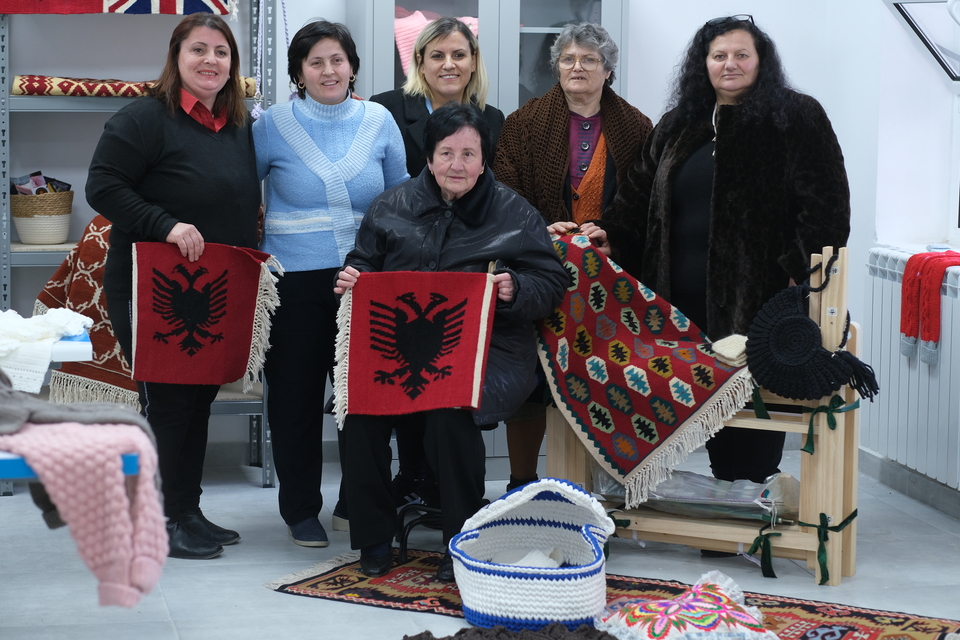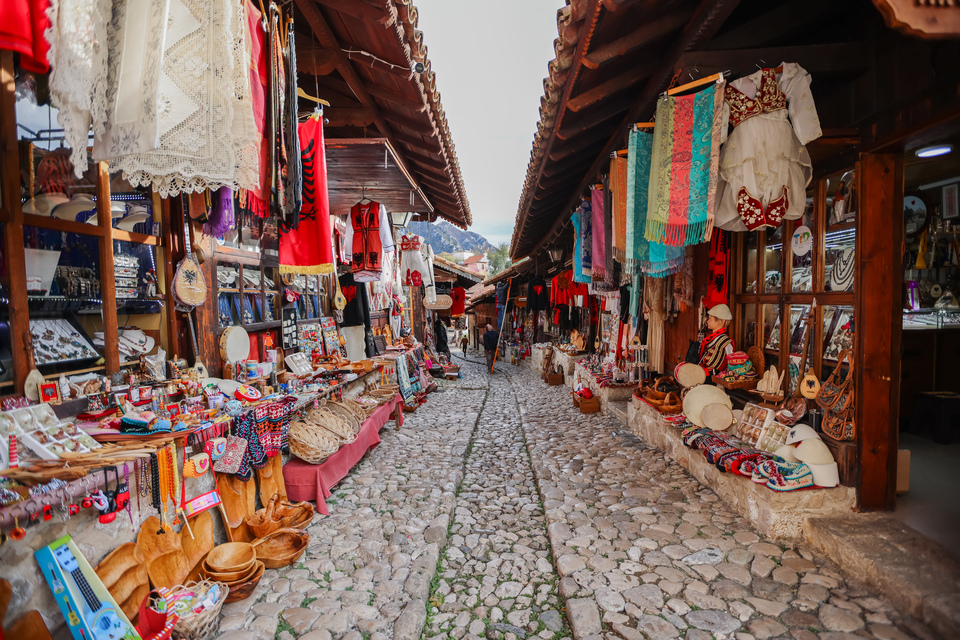Crafting a Brighter Future: How Handicraft Centers are Supporting Women Artisans in Albania
Date:

Olympic gold medal winning British diver Tom Daley went viral when he was photographed knitting at the 2020 Tokyo Olympics. He revealed that the craft was his “secret weapon” as it played an important role in his mental health. As healing as it might be, crafting has been a way of living for most Albanian women and girls. Traditional handicrafts are part of the country’s cultural heritage and these skills have been passed on from generation to generation for the past six centuries. Today most of the handicraft is more of a stock-in-trade with women artisans, selling their wares on the streets, on demand, or in fairs or bazaars.
To support the economic empowerment of women through traditional handicrafts, UN Women helped establish two Handicraft Development Centers in the towns of Kruja and Kavaja, traditionally known for the variety of products such as textiles, embroidery, copper works, pottery, handwoven rugs, etc.
In the wake of the 2019 earthquake that hit Albania, UN Women’s intervention focused on the economic empowerment of women in the most affected areas (11 municipalities). Funded by the Government of Sweden through the UN Albania SDG Acceleration Fund, the “Gender sensitive post-earthquake recovery and reconstruction” project, helped engage women artisans from Kruja and Kavaja in employment or self-employment, participate in the handicraft value chain and market, and earn higher incomes.
The Handicraft Development Centers were established in partnership with the Albanian Network for Rural Development and the municipalities of the respective towns, Kruja and Kavaja. The aim was to create a space where women artisans can come together, learn and share their handcraft skills with each-other and with an emerging generation of artisans, as well as join forces to promote their traditional products in the market.
The program introduced the concept for a local brand, “Kruja Artizanale” (Artisanal Kruja), and the website www.artizanetekrujes.al was set up to showcase the artisanal products and to market events organized by the group of women artisans. The website provides an opportunity for everyone interested to learn about the work and values of artisan women from Kruja and their handmade products.

Xhemelina Korkaj, who has been selling in the old Kruja bazaar for many years, was one of the first to join the group, not as an artisan, but as a marketer. “I manage the newly-established website and I am eager to support women artisans in promoting their products, connecting them with each-other, and helping them access markets, fairs, and potential retailers.”
Women artisans now have a place where they can come together for a variety of group activities and where they can work in each-other’s company. This common space will also allow them to transfer their unique skills and knowledge to the next generation and contribute to preserving the town’s uniqueness and leadership in handicrafts.
Kumrije Berushi, an artisan with over four decades of experience, is the leader of the Artisan Center in Kruja. She believes that if women join their efforts and skills, they will be able to create new handicraft designs and products, responding to the demands of today's market while preserving the values and age-old tradition of the Kruja bazaar.
The Handicraft Development Centers are excellent examples of how a community can come together to empower women economically, while preserving authenticity and cultural heritage. Women artisans of Kruja and Kavaja now have in their hands the “secret weapon” to succeed in the handicrafts markets and prevail over commercial copies and reproductions.